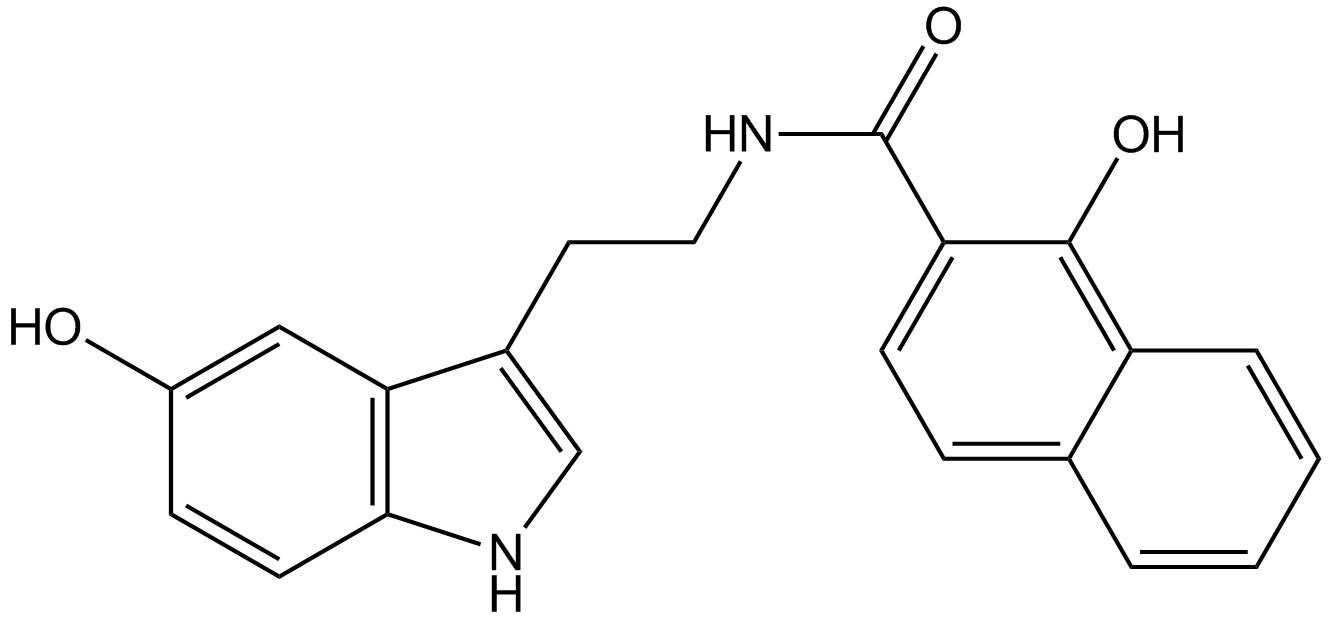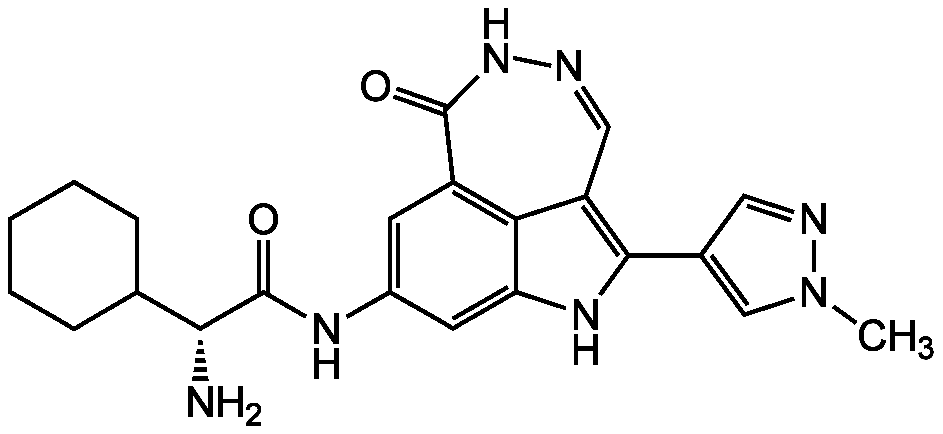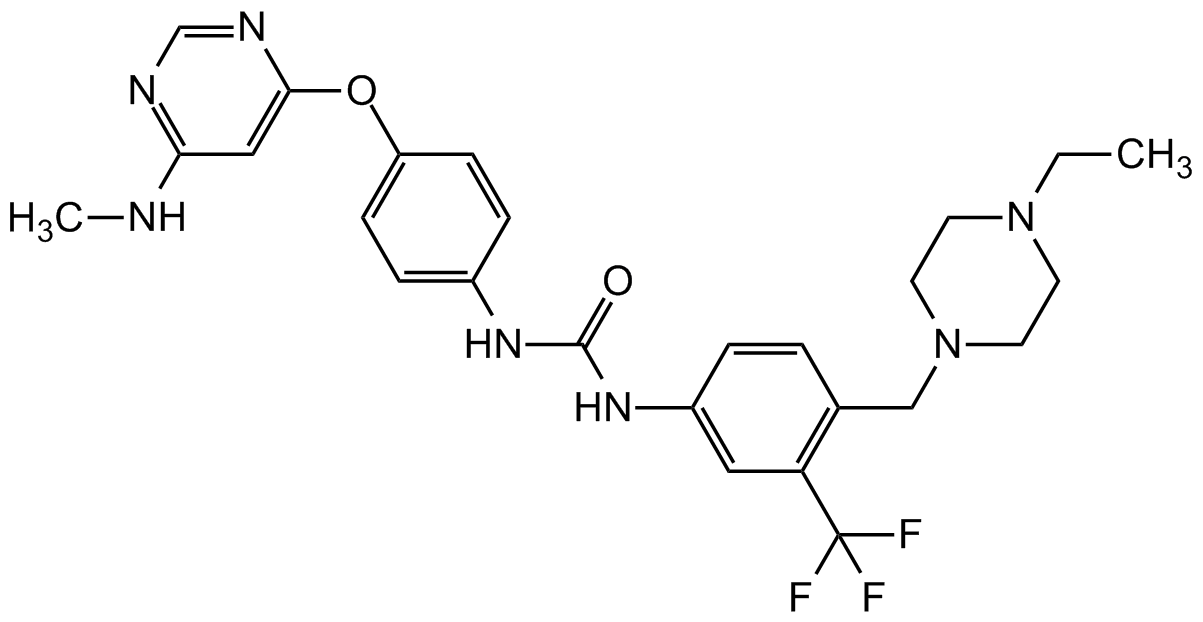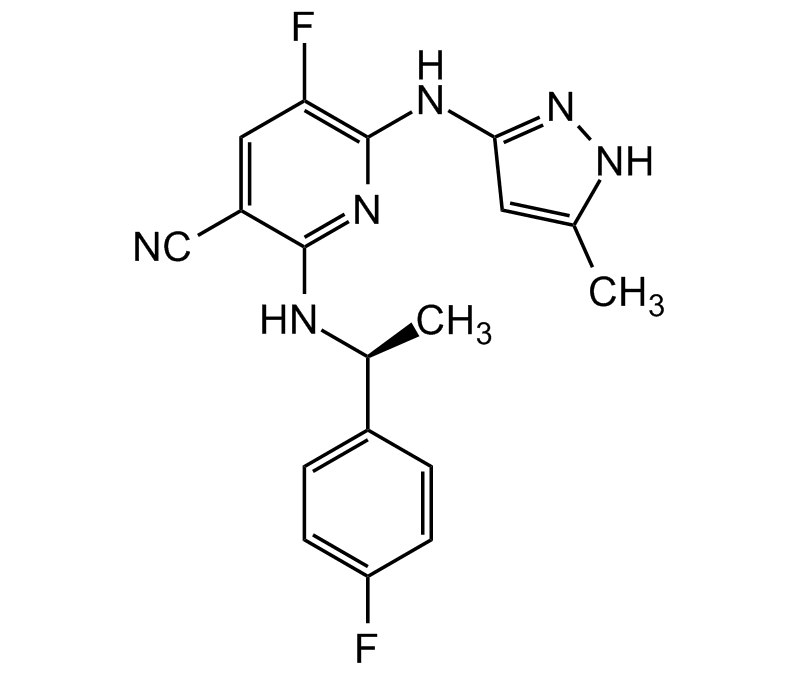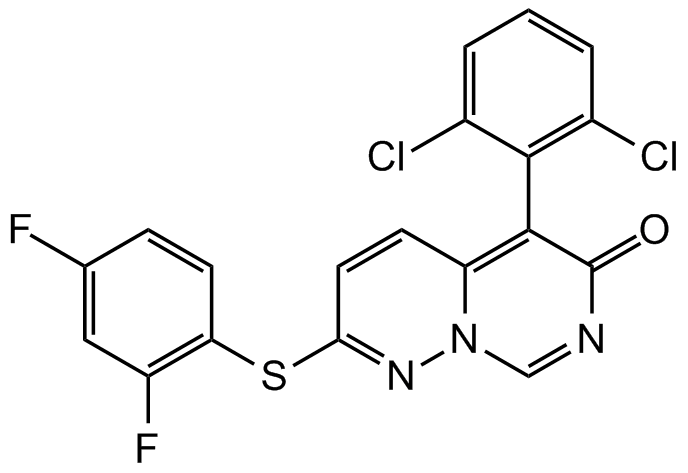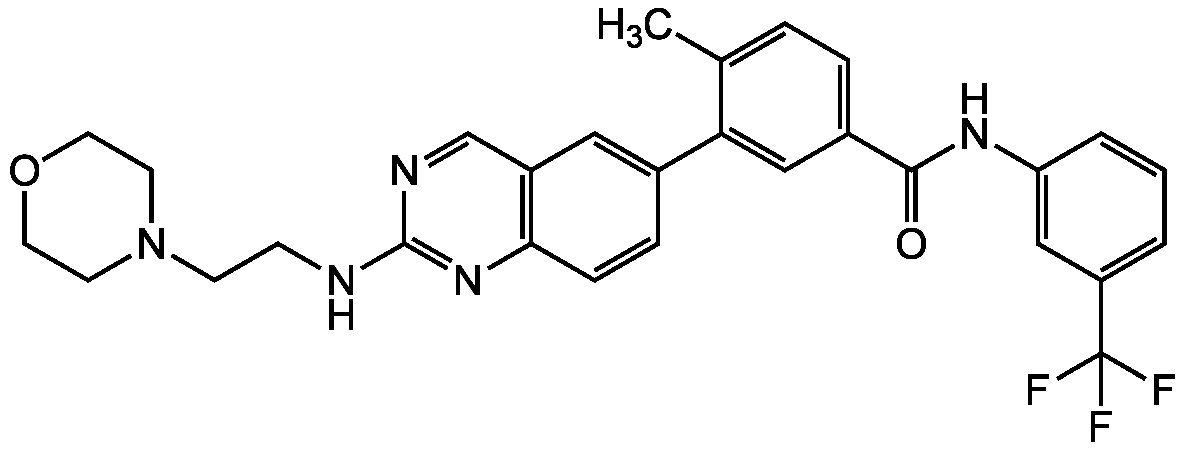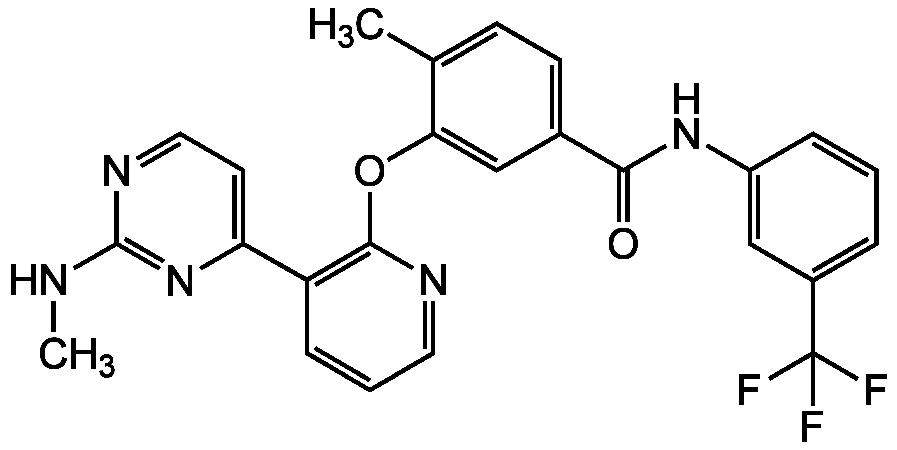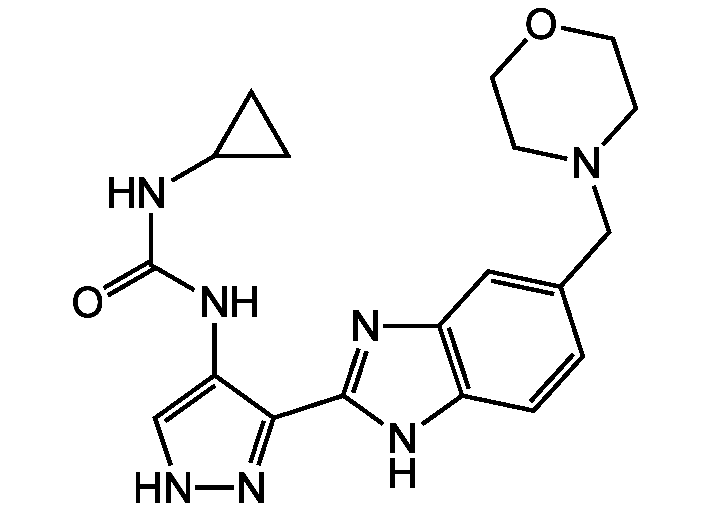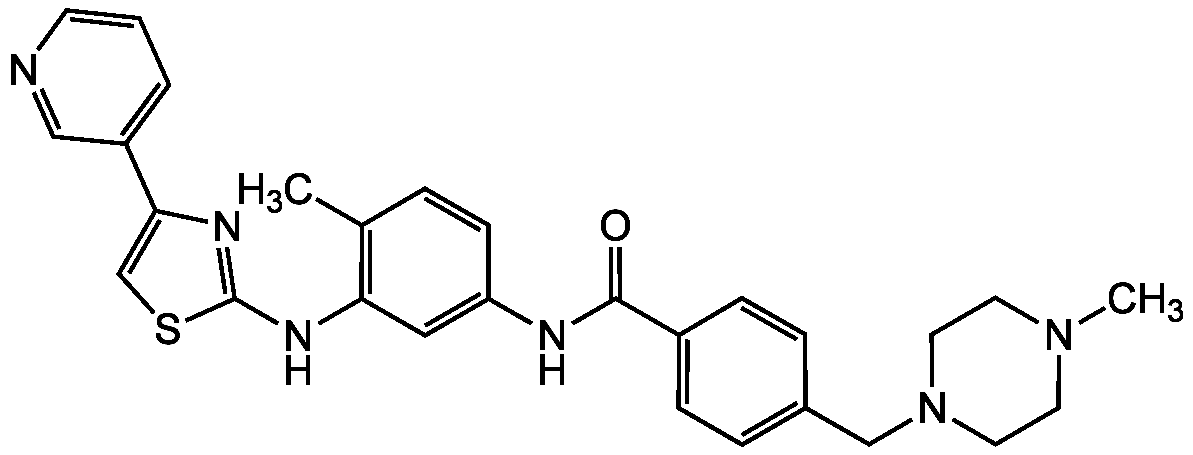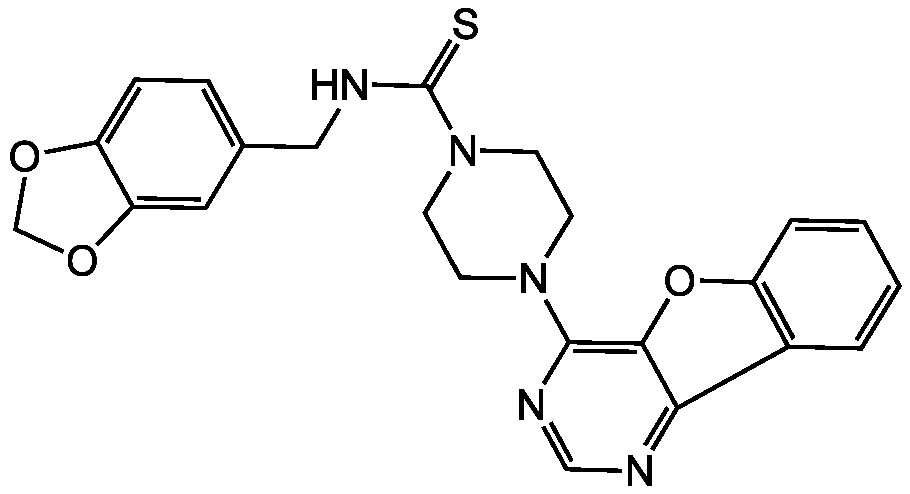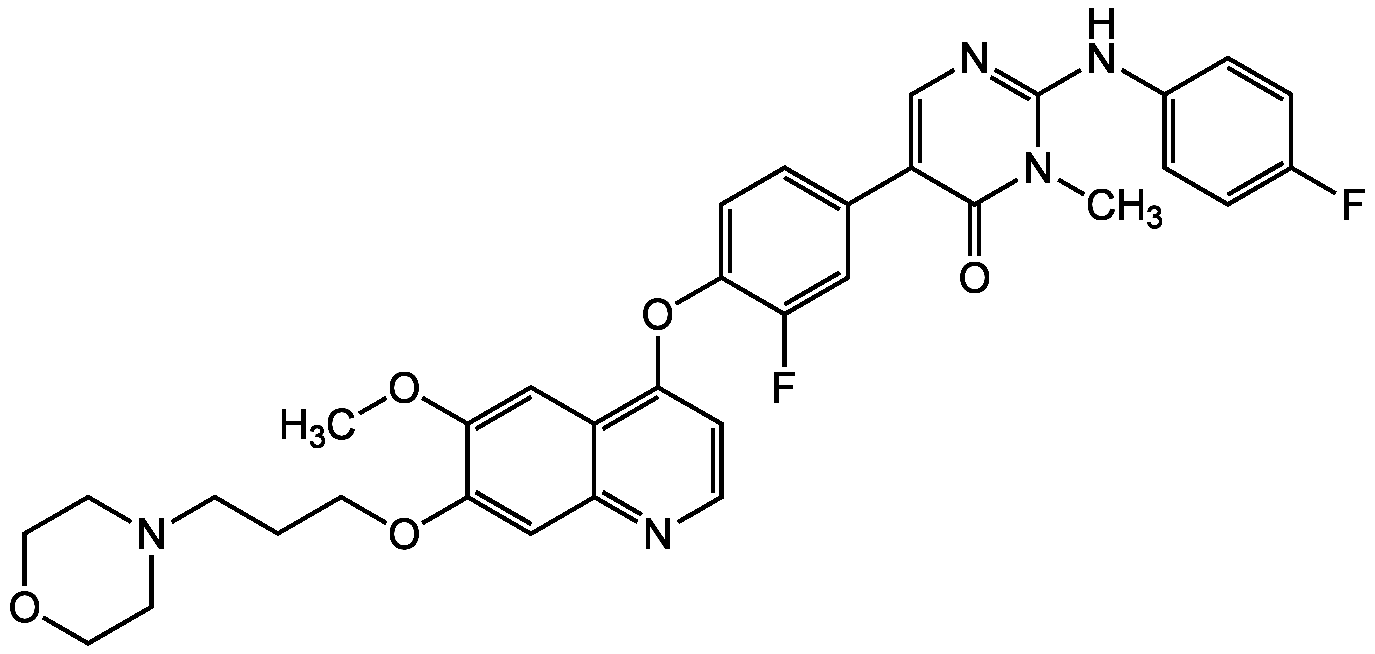
Chemical Structure
AMG-51 [890019-63-3]
SYN-1111
CAS Number890019-63-3
Product group Chemicals
Estimated Purity>95%
Molecular Weight629.7
Overview
- SupplierSYNkinase
- Product NameAMG-51 [890019-63-3]
- Delivery Days Customer2
- CAS Number890019-63-3
- CertificationResearch Use Only
- Estimated Purity>95%
- Molecular FormulaC34H33F2N5O5
- Molecular Weight629.7
- Scientific Descriptionc-Met kinase is the receptor for hepatocyte growth factor (HGFR). Primarily expressed on epithelial and mesenchymal cells its normal function is associated with wound healing, liver regeneration and embryo development. However, dysregulation of c-Met through overexpression, gene amplification, mutation or a ligand-dependent autocrine/paracrine loop is associated with tumorigenesis. c-Met dysregulation in human cancer patients is typically associated with a poor prognosis, aggressive disease, increased metastasis and shortened patient survival. Targeting the hepatocyte growth factor/c-Met signalling pathway as a means of cancer therapy has, therefore, become increasingly popular with a number of different therapeutic approaches undergoing clinical trials. AMG-51 represents a modified novel pyrimidone 7 compound that demonstates good effectiveness against c-Met with few off target effects at set concentrations. AMG-51 shows the enzyme selectivity of c-Met with a Ki of 4.9nM, with off target proteins such as IGFR with a Ki of 22nM, Ron with a Ki of 28nM, and KDR with Ki of 139nM. - Chemical. CAS: 890019-63-3. Formula: C34H33F2N5O5. MW: 629.7. c-Met kinase is the receptor for hepatocyte growth factor (HGFR). Primarily expressed on epithelial and mesenchymal cells its normal function is associated with wound healing, liver regeneration and embryo development. However, dysregulation of c-Met through overexpression, gene amplification, mutation or a ligand-dependent autocrine/paracrine loop is associated with tumorigenesis. c-Met dysregulation in human cancer patients is typically associated with a poor prognosis, aggressive disease, increased metastasis and shortened patient survival. Targeting the hepatocyte growth factor/c-Met signalling pathway as a means of cancer therapy has, therefore, become increasingly popular with a number of different therapeutic approaches undergoing clinical trials. AMG-51 represents a modified novel pyrimidone 7 compound that demonstates good effectiveness against c-Met with few off target effects at set concentrations. AMG-51 shows the enzyme selectivity of c-Met with a Ki of 4.9nM, with off target proteins such as IGFR with a Ki of 22nM, Ron with a Ki of 28nM, and KDR with Ki of 139nM.
- Storage Instruction2°C to 8°C
- UNSPSC12161509

